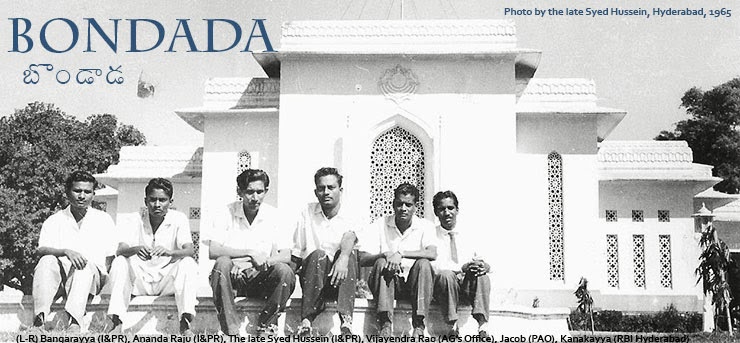By K Naresh Kumar - HYDERABAD
Published: 17th February 2014 09:12 AM Last Updated: 17th February 2014 09:20 AM
As a writer, playwright and screen play specialist, Vijay Tendulkar, obviously needs no introduction. In his writing career spanning more than five decades, Tendulkar has written 27 full-length plays and 25 one-act plays. Several of his plays have proven to be Marathi theatre classics. His plays have been translated and performed in many Indian languages.
One such play Hatt Teri Kismet, translated by Vasant Dev into Hindi, was staged at Lamakaan on Saturday night by Udaan Performing Arts. Originally written in the ‘70s, this play, a political satire in essence, talks about the unabashed addiction of power politics. Smartly customised to suit the current situation, the theatre group made it very contemporary and interesting.
In what seems to be turning into a popular format of Udaan - just two main characters on stage - the 70-minute play takes off right from the beginning when an out-of-power Chief Minister (Saurabh Gharipurikar) is shown plotting his return to the coveted chair. He comes in contact with an aam aadmi (Ashutosh Patwardhan) in the process, who quizzes him on various issues -- most of them trying to understand how these scums operate in society. The Chief Minister-in-waiting boasts about his survival in the quicksand of politics and how he is always self-centred and focused, often at the cost of his family and their desires. In fact, some of the comments the politician makes are dangerously close to reality -- especially when he says that ‘all that he does is strengthen the hands of the PM who is otherwise dumb and controlled by the Delhi madam’.
The unexpected twist comes when the politician decides to exchange his dress with that of the commoner when he sees an angry crowd approaching him and wants to escape their wrath. Along with the costumes, the faces also get inter-changed and voila! All hell breaks loose. This is the first swipe of bad luck that affects the politician.
Before his very eyes, the neta sees the commoner assume all those traits and characteristics which he possessed while he gets demoted to being pushed to a clerical position, where he inches up slowly in a year’s time. During this period, the commoner, now the Chief Minister goes from strength to strength and the original politician is now frustrated and desperate to come back to his original slot at any cost. He manages this by cunningly overpowering the commoner physically and assuming his original personality.
Once again the crowd returns and thrashes the original Chief Minister black and blue for being a terrible and corrupt administrator and rewards the commoner, who enjoys a second stroke of luck, the opposite effect of the politician who gets the rough end of the stick once more!
Liberally plucking anecdotes from day-to-day happenings and aptly placing it in the plot (like the LPG cylinder subsidy and allusions to the common man and his corruption-affected life), the play takes potshots at the authoritarian power structure of Delhi politics and the people who run it, blissfully oblivious to a myriad of problems.
A 100-strong audience thoroughly enjoyed the show on a windy evening.
Published: 17th February 2014 09:12 AM Last Updated: 17th February 2014 09:20 AM
As a writer, playwright and screen play specialist, Vijay Tendulkar, obviously needs no introduction. In his writing career spanning more than five decades, Tendulkar has written 27 full-length plays and 25 one-act plays. Several of his plays have proven to be Marathi theatre classics. His plays have been translated and performed in many Indian languages.
One such play Hatt Teri Kismet, translated by Vasant Dev into Hindi, was staged at Lamakaan on Saturday night by Udaan Performing Arts. Originally written in the ‘70s, this play, a political satire in essence, talks about the unabashed addiction of power politics. Smartly customised to suit the current situation, the theatre group made it very contemporary and interesting.
In what seems to be turning into a popular format of Udaan - just two main characters on stage - the 70-minute play takes off right from the beginning when an out-of-power Chief Minister (Saurabh Gharipurikar) is shown plotting his return to the coveted chair. He comes in contact with an aam aadmi (Ashutosh Patwardhan) in the process, who quizzes him on various issues -- most of them trying to understand how these scums operate in society. The Chief Minister-in-waiting boasts about his survival in the quicksand of politics and how he is always self-centred and focused, often at the cost of his family and their desires. In fact, some of the comments the politician makes are dangerously close to reality -- especially when he says that ‘all that he does is strengthen the hands of the PM who is otherwise dumb and controlled by the Delhi madam’.
The unexpected twist comes when the politician decides to exchange his dress with that of the commoner when he sees an angry crowd approaching him and wants to escape their wrath. Along with the costumes, the faces also get inter-changed and voila! All hell breaks loose. This is the first swipe of bad luck that affects the politician.
Before his very eyes, the neta sees the commoner assume all those traits and characteristics which he possessed while he gets demoted to being pushed to a clerical position, where he inches up slowly in a year’s time. During this period, the commoner, now the Chief Minister goes from strength to strength and the original politician is now frustrated and desperate to come back to his original slot at any cost. He manages this by cunningly overpowering the commoner physically and assuming his original personality.
Once again the crowd returns and thrashes the original Chief Minister black and blue for being a terrible and corrupt administrator and rewards the commoner, who enjoys a second stroke of luck, the opposite effect of the politician who gets the rough end of the stick once more!
Liberally plucking anecdotes from day-to-day happenings and aptly placing it in the plot (like the LPG cylinder subsidy and allusions to the common man and his corruption-affected life), the play takes potshots at the authoritarian power structure of Delhi politics and the people who run it, blissfully oblivious to a myriad of problems.
A 100-strong audience thoroughly enjoyed the show on a windy evening.
Source: The New Indian Express












